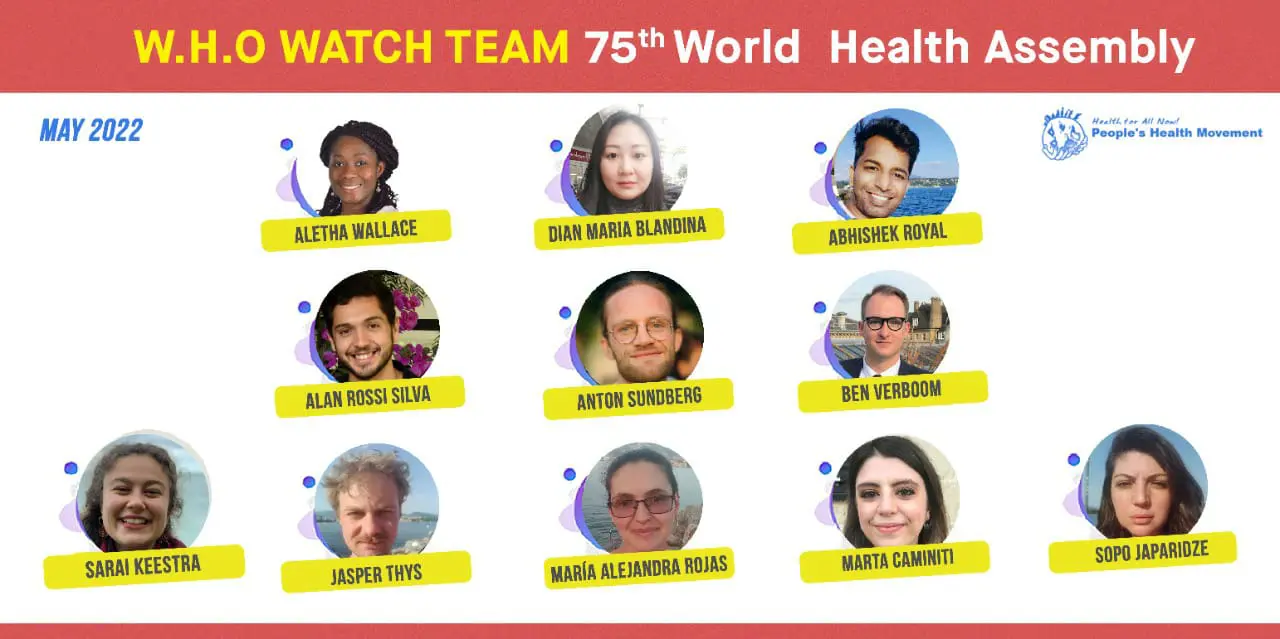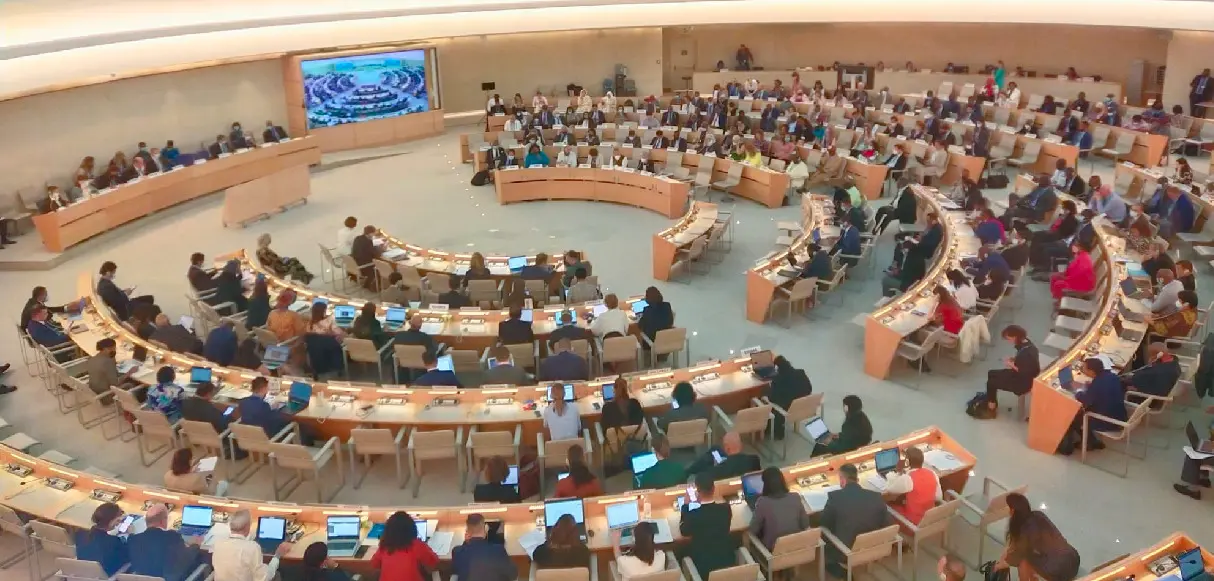Global South in solidarity with Palestine at World Health Assembly
Delegates from the Global South expressed solidarity with Palestine during a discussion on a report on the health status in occupied Palestine and the occupied Syrian Golan.
Delegates at the 75th World Health Assembly (WHA 75) discussed a report on the health status of people in the Palestinian territories and the occupied Syrian Golan on May 25. Together with the report, countries were invited to adopt a decision submitted by a group of countries from the World Health Organization’s Eastern Mediterranean region, which recognizes the dire situation that the Israeli occupation has created in Palestine.
After a lengthy discussion and public vote, the decision was passed with 77 favor, 14 against, and 36 abstentions. 56 countries were absent during the discussion. Although the Director General’s report is a regular point on the WHA’s agenda, it never fails to cause friction due to the opposition of Israel and the US, who find the topic too political to be discussed at the WHO. In spite of the usual protests, this year’s discussion of health in Palestine was marked by the many expressions of solidarity from countries in the Global South.
Statements of support were delivered by delegates from Africa, Latin America and Asia. Cuba, Venezuela, and Bolivia reasserted once again their full support for the just cause of the Palestinian people under occupation. The Bolivian delegate also denounced the widespread imprisonment of Palestinian children by the Israeli Occupying Forces (IOF). The delegate said that the Israeli occupation shows “no respect for the life of Palestinian people” and is a violation of human rights.
Palestinian health workers’ exposure to violence
Many delegates present in the room warned the Assembly about the IOF targeting of Palestinian health workers through violent attacks, frequent checks, and imprisonment. Statements coming from the Maldives, Tunisia, Niger, and Iran stressed that the IOF’s intentional targeting of health workers and healthcare facilities in Palestine was a gross infringement of human rights and had to be stopped.
The delegates’ concern was backed by the findings of the Director General’s report, which noted 235 attacks against health workers in the occupied Palestinian territory in 2021. Of these, “185 (79%) involved physical violence towards health care, resulting in the injury of 106 health care workers and damage to 57 ambulances and 124 health facilities.”
In 2021, as many as 15 Palestinian health workers were arrested or detained by the IOF during the attacks, and even more were imprisoned during raids. Among them is Shatha Odeh, nurse and Director of the Health Work Committees, who was sentenced to 16 months in prison in May 2022. The arrest and sentencing of Shatha Odeh was condemned on many occasions by people’s movements, including the People’s Health Movement, as the organization which she leads has been responsible for providing essential health care to more than 400,000 Palestinians since it was first formed.
Apartheid’s effects on health
The Israeli occupation is extremely detrimental to the physical and mental health of Palestinians in many ways. In the initial address on behalf of the WHO’s Eastern Mediterranean region, Algeria condemned the violent attacks on the Al Aqsa mosque and the killing of journalist Shireen Abu Aqleh. The Algerian delegate warned that the Israeli occupation directly undermines the right to health, and said the world has to stop averting its eyes.
Their statement echoed the Director General’s report, which draws attention to large differences in life expectancy between Palestinians and Israelis, among other things. In Palestine in 2019/2020, the under five mortality rate was 14 per 1000 children. In comparison, the under-five mortality rate was 4 per 1000 children in Israel in the same year.
The Israeli occupation is also leaving Palestinians exposed to the worst possible effects of non-communicable diseases, which could be addressed by securing continuous access to necessary health care.
A delegate from Jordan warned that COVID-19 added another layer of oppression, as the IOF impeded the delivery of vaccines secured by WHO and the United Nations International Children’s Emergency Fund (UNICEF) to Palestine. Because of Israel’s constant obstructions, vaccination coverage in Palestine remains inadequate. COVID-19 was the reported cause of 11% of deaths in occupied Palestinian in 2020.
Lebanon’s delegation said they are “pained to see that Palestinians struggle to receive vaccinations, whether vaccines for newborns or others,” concluding that the only way to win the right to health in Palestine was for the occupation to end.
Despite the Director General’s report and the widespread support of the Palestinian cause by countries of the Global South, rich countries once again voted overwhelmingly against the proposed decision. Led by Israel and the United States, most members of the European Union opposed the draft decision, as did Australia and Canada. The decision called for the Director General to continue reporting on the health status in Palestine and the occupied Syrian Golan, and to ensure technical and financial support for their health systems.
Still, the votes against the decision were not enough to effectively stop it. This means that the 76th World Health Assembly in May 2023 will again discuss a report on the health status in occupied Palestine, which will provide a new chance for more member states to side with the Palestinian people over the Israeli occupation.

The WHO Watch team members are Abhishek Royal, Alan Rossi Silva, Aletha Wallace, Anton Sundberg, Ben Verboom, Dian Maria Blandina, Jasper Thys, Maria Alejandra Rojas, Marta Caminiti, Sarai Keestra, Sopo Japaridze, Lauren Paremoer, Jyotsna Singh, and Gargeya Telakapalli.
This article was published earlier on People’s Dispatch.


